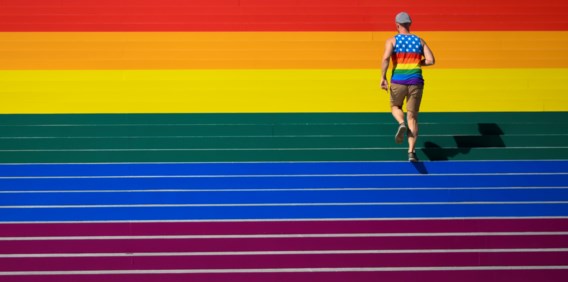Belgium continues to score highly on the ILGA-Europe Rainbow Index, this year ranking third of 49 European countries that are placed according to their legal and policy practices for LGBTQ people.
The ranking looks at the laws and policies in the countries using a set of criteria, including equality and non-discrimination, family, hate crimes and hate speech, legal gender recognition, intersex bodily integrity, civil society space, and asylum.
"It is encouraging to see that several governments actively chose to take real action over the past 12 months to progress LGBTQ equality, and as a result, that the Rainbow Map looks positively different compared to this time last year," said ILGA-Europe’s Executive Director Evelyne Paradis.
Even though Belgium – which ranked second from 2018 to 2021 – dropped a place, its LGBTQ rights have not regressed. Instead, Denmark (ranked ninth last year) started filling in anti-discrimination gaps in current legislation and managed to jump seven places, landing in second spot.
Denmark’s jump is due to the fact that it is taking the lead in amending its equal treatment law, which covers health, education, employment, provision of goods and services, and the penal code to include sexual orientation, gender identity, gender expression and sex characteristics as aggravating factors in hate crime.
For the seventh year in a row, Malta sits top of the list with a score of 92%.
Renewed mobilisation
Other countries are also pushing forward: Iceland climbed in the ranking because of its legislative recognition of trans parenthood, Germany introduced a ban on intersex genital mutilation and France banned so-called ‘conversion therapy’ based on sexual orientation and gender identity.
"In the face of anti-LGBTQ forces which remain rife across Europe, we welcome the renewed mobilisation by a growing number of politicians and government officials to do what is needed to improve the lived realities of LGBTQ people," Paradis said.
This year, ILGA-Europe is also monitoring intersex bodily integrity to send a clear message to governments that protecting the human rights of intersex people requires dedicated efforts and specific laws and policies.
Germany and Iceland have joined the small number of countries banning non-medically necessary interventions on intersex people without consent, but so far no country – including Malta – has put in place the necessary implementation and monitoring policies that would allow for full protection of intersex people’s bodily integrity.
Belgium, Austria, Cyprus and France are all working on laws to ban these kinds of interventions.
Related News
- MEPs demand more action on ‘deterioration of common values’ in Hungary and Poland
- Brussels donates €60,000 for LGBTQ movement in Hungary and Poland
- Belgian Pride returns 21 May: 100,000 participants expected
The United Kingdom has regressed considerably in the ranking, dropping from 10th to 14th place. This follows new evidence that its equality body is not (as set out in its mandate) offering sufficient protection on matters of sexual orientation and gender identity.
As political and media anti-trans sentiment grows, the British Government is lagging behind on long-promised reforms on gender recognition and banning so-called ‘conversion therapy’ for all.
Anti-LGBTQ sentiment is also on the rise in Bulgaria and Romania, with both countries now close to the lowest ranking in the EU, which belongs to Poland. In Romania, authorities are obstructing freedom of assembly by banning and punishing Pride events.
Hungary dropped three places, mainly because its parliament adopted a number of amendments which directly discriminate against LGBTQ people, including a ban on the "portrayal and the promotion of gender identity different from sex at birth, the change of sex and homosexuality" for minors.
A downward spiral
"Despite the new dynamic we are clearly seeing, the situation remains fragile. A downward spiral of hostile political discourse, legislative stagnation and, in some countries, even withdrawal of LGBTQ rights and freedoms is worrying," said ILGA-Europe’s Advocacy Director Katrin Hugendubel.
Hugendubel stressed that while countries like Bulgaria and Romania have not garnered the same bad publicity as Hungary, they are still moving nearer to Poland at the very bottom of the EU.
“Additionally, the situation in the UK is a sad reminder that when governments do not stand strong on their commitments to advance minority rights, a powerful opposition can use that space to spread hate and division,” Hugendubel added.
Currently, 20 countries out of 49 still have no protection against hate crime based on sexual orientation, while 28 countries have no protection against violence based on gender identity.
The three countries that score worst on equal rights for LGBTQ people are Azerbaijan (2%), Turkey (4%), and Armenia (8%) – exactly the same as the last two years.

